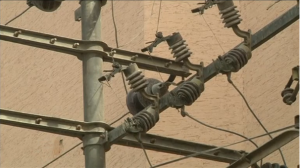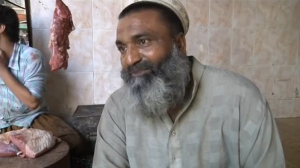
JUNE 29 (Reuters) — A deadly heat wave combined with persistent power cuts have taken their toll on Karachi’s butchers, with business falling as residents struggle to keep meat fresh.
Sea breezes brought lower temperatures on Friday (June 26), easing the heat that has killed more than 1,150 people around Pakistan’s teeming port city of Karachi during the Muslim fasting month.
However, butchers in the city were still seeing a drop in their sales on Sunday (June 28).
“Many people said they threw the meat out. It does not stay fresh in the fridge because most of the time the power is absent. So the meat gets rotten, chicken gets rotten. You know already what the condition of refrigerators is at the moment. Fridges are not working. It is not only the refrigerators but people are expiring these days,” said Mohammad Raees, a butcher in the city.
Mass funerals were held for 50 unidentified victims on Friday before their bodies were hastily buried.
The extreme heat of up to 44 degrees Celsius (111 Fahrenheit) – the hottest since 1981 – has coincided with power failures and triggered sharp criticism of the government’s response in the city of 20 million people.
The power outages has left many without fans, water or light at the beginning of Ramadan, when many Muslims do not eat or drink during daylight hours.
Raees said one of his customers had cancelled their usual order.
“One of my customers who used to buy five kilograms of meat told me today to send not more than one kilogram of meat to his home because last time the meat got rotten,” he said.
One elderly customer said he was only buying the amount of meat that could be cooked and eaten straight away.
“Naturally, when there is no power, we will buy less meat – one kilogram, half kilograms, quarter kilogram. Isn’t that right?” said Haji Haroon, an elderly customer.
At a vegetable market on Sunday, another customer said she preferred to eat vegetables during such intense heat.
“It is very hot. How can we eat meat? We cannot eat meat or chicken in this weather of prickly heat and rashes. It is better to eat vegetables,” said Shazia Adeel, a housewife.
The crisis – following a heat wave in India last month that killed about 2,500 people – illustrates how ill-prepared many developing nations are for the extreme weather conditions that scientists say will accompany global climate change in coming decades.
Pakistan’s national and local political parties have blamed one another for the crisis, while much of the relief was provided by the powerful military and private charities such as the Edhi Foundation.









